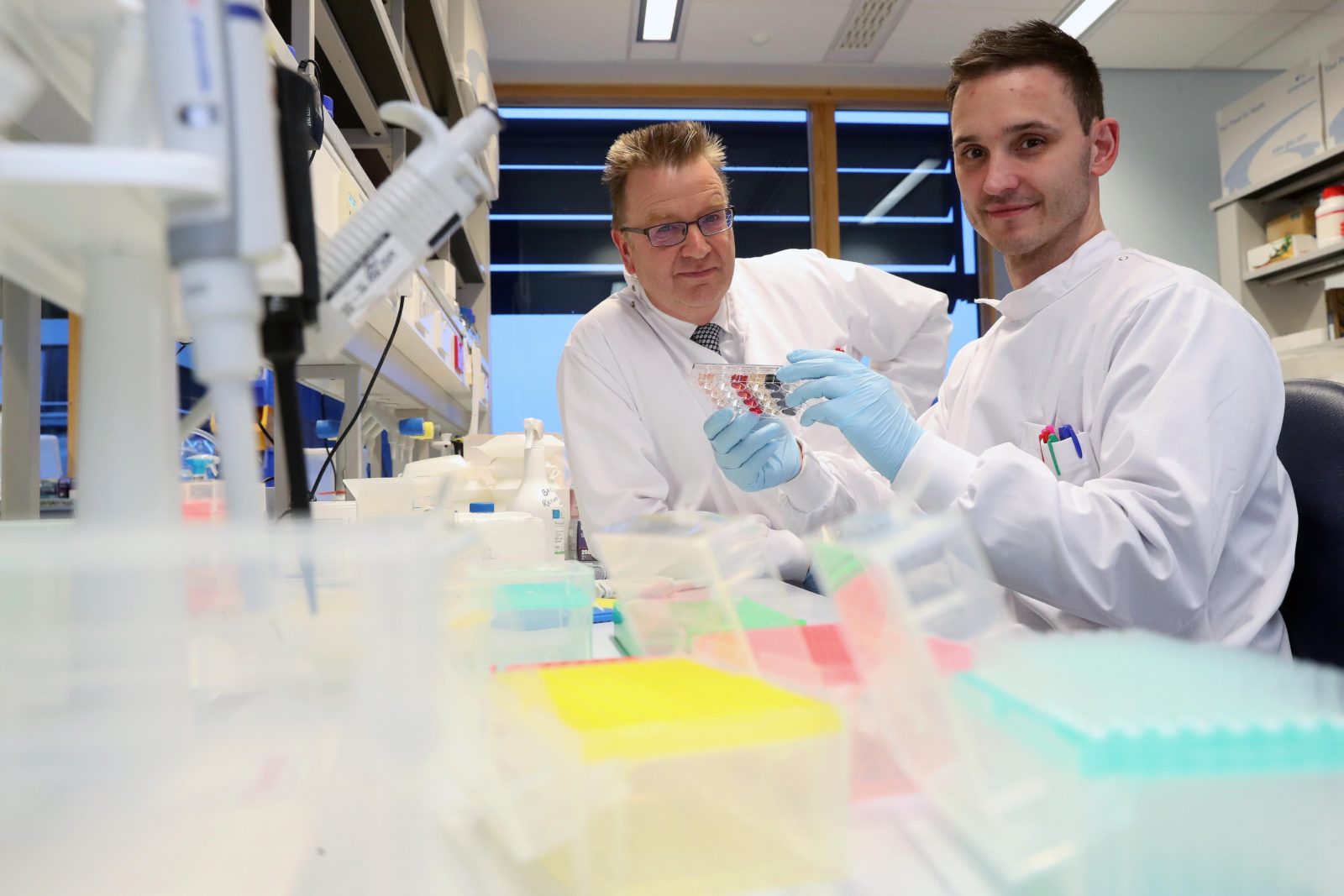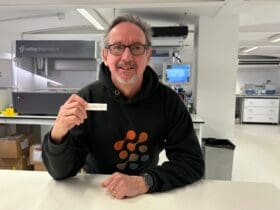DISCOVERING effective and kinder treatments for children with cancer will be the focus of a new £20m international study involving researchers in Wales.
Researchers in Cardiff are set to receive £621,880 from Cancer Grand Challenges, a research initiative co-founded by Cancer Research UK and the National Cancer Institute in the US, which aims to encourage the world’s leading researchers to tackle the toughest challenges faced by cancer patients.
Professor Andrew Sewell, at Cardiff University, will be part of the Next Gen T-Cells (NexTGen) challenge – which will focus on developing more effective and specific treatments for children with fewer side effects than current interventions.
The Cardiff scientist’s team will join four elite global teams awarded £80m in total, who will deepen our understanding of cancer in a way not possible working alone leading to new advances for people with cancer.
Led by researchers at University College London and the Children’s National Hospital in the US, NexTGen will focus on childhood solid cancers, such as sarcomas and brain tumours1.
Despite improvements in overall survival over the last 40 years, cancer remains the leading cause of death by disease in children worldwide, and in the UK. Some of these types of cancer continue to have low survival, such as brain tumours and sarcoma.
Many children and young people who survive do so with serious long-term side effects from their treatment, such as learning difficulties and infertility. For children whose cancer returns, treatment options can be limited.
The NexTGen team will seek to develop new and specific treatments for childhood solid tumours. One of these treatments will be CAR T-cell therapies which involve taking T-cells (a type of immune cell) from a patient and modifying them in the lab to recognise and attack the cancer cells. The modified T cells are called CAR T-cells, and they are given back to the patient via a drip.
Currently, CAR T-cell therapy is available as a possible treatment for some children with leukaemia and some adults with lymphoma, but so far has had limited success for solid tumours.
The team hopes to see CAR T-cell therapy for solid childhood cancers being front line treatment within a decade and, by developing better and more specific treatments, improve survival in children with solid cancers and lessen the lifelong toxicities often experienced by survivors.
NextTGen is among four winning teams announced in the latest round of Cancer Grand challenges – a ground-breaking £425m research initiative co-founded by Cancer Research UK and the National Cancer Institute in the US.
The other teams include eDyNAmiC2 which will investigate new ways to combat treatment resistant cancers; CANCAN3 which hopes to prevent cachexia where patients ‘waste away’ in the later stages of the disease; and PROMINENT4 which aims to create a roadmap of tumour development.
Professor Sewell said: “Immunotherapy represents the biggest development in cancer therapy for more than 50 years.
“Immune cells called T-cells, which my laboratory has worked on for more than 25 years, are key to this success.
“I’m delighted to have the opportunity to work with a renowned international team to try and extend the success already seen in some treatments for blood cancer into other childhood cancers.”
According to the World Health Organisation cancer is the second leading cause of death around the world and growing all the time, claiming almost 10 million lives a year 5, accounting for 1 in 5 deaths worldwide 6.
This means the world is witnessing a growing cancer burden that exerts tremendous physical, emotional and financial strain on individuals, families, communities and national healthcare systems.
Cancer is a global issue that needs a global effort to tackle, and Cancer Grand Challenges’ unique model of collaboration facilitates researchers from around the world to come together across traditional boundaries of geography and disciplines, encouraging them to think differently and drive progress in pursuit of some of cancer’s toughest challenges.
Cancer Research UK Chief Executive Michelle Mitchell said: “Across the world we are witnessing a growing universal cancer burden, that exerts tremendous physical, emotional and financial strain on individuals, families, communities and national healthcare systems. We have seen over the last year how the world’s best scientists and researchers transcended borders to tackle Covid 19. We are now bearing similar fruits with Cancer Grand Challenges – as world-class researchers come together to change how we understand and manage cancer.”
Cancer Research UK Chief Clinician and Cancer Grand Challenges scientific committee member, Professor Charles Swanton, said: “I am fortunate to work as both a scientist and clinician and am very excited about the future clinical impact of these four Grand Challenges. I know there is an urgent need for new cancer treatments for children.
“I’ve also seen first-hand the extreme weight loss and lethargy that patients experience from cancer cachexia and the need to develop insight and treatments to combat this clinical challenge that is associated with poor outcome.
“That’s why I am so excited that we are funding these challenges because they have the potential to have a massive, positive impact for patients.”
The announcement of these latest four teams increases the number of Challenges to 11, encompassing a growing global community of investigators, which now stands at 700+ researchers, advocates, and partners from across 10 countries7 and 68 research institutions. Around 2,000 researchers across 169 teams applied for funding, narrowed down to a shortlist of 11.









Leave a Reply
View Comments